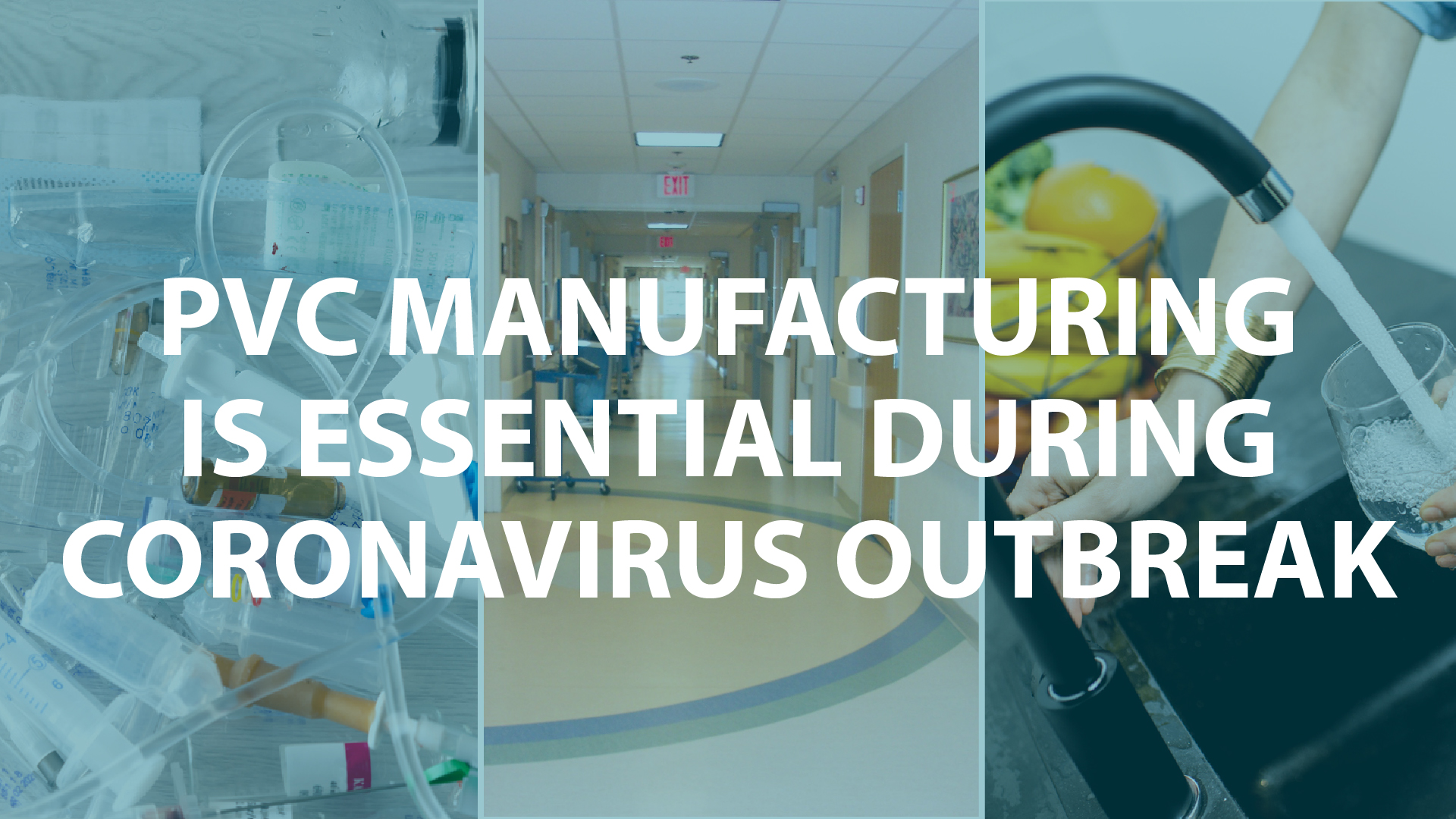This website uses cookies so that we can provide you with the best user experience possible. Cookie information is stored in your browser and performs functions such as recognising you when you return to our website and helping our team to understand which sections of the website you find most interesting and useful.
Press Room
Homeland Security Should Continue to Classify PVC Industry as Tier 1 Essential During Coronavirus Outbreak
March 19, 2019
UPDATE: CISA released updated guidance which includes the entire PVC industry. To read CISA’s latest guidelines, click here.
Earlier this week, President Trump issued updated Coronavirus Guidance for America that if followed should help slow the spread during an intense 15-day period. Included was the following statement:
If you work in a critical infrastructure industry, as defined by the Department of Homeland Security, such as healthcare services and pharmaceutical and food supply, you have a special responsibility to maintain your normal work schedule.
As the Department of Homeland Security’s (DHS) Cybersecurity and Infrastructure Agency (CISA) begins to determine which employers and businesses should be classified as Tier 1 Type of Essential Critical Infrastructure Workers, the Vinyl Institute (VI) finds it imperative to request CISA continue to recognize the entire PVC industry – including manufacturers of vinyl, vinyl chloride monomer, and vinyl additives and modifiers – and our workforce as critical. PVC is essential to public health. Just for example, PVC is one of the primary materials used in many medical supplies is critical to the water infrastructure that delivers clean drinking water to millions of Americans.
In CISA’s 2007 analysis, the agency designated the PVC workforce as Tier 1 Essential because the chemical industry is essential to the safety of the United States, and chemical products play a vital role in “every party of modern society in a positive way.” CISA specifically discussed the role of PVC and its key building block, chlorine.
Chlorine serves as a disinfectant. According to the World Health Organization, chlorine’s use in water treatment represents one of the most significant advances in public health protection. Chlorine plays a key role in controlling bacteria and viruses in water that can cause human illness. (p. 57)
The medical field benefited greatly from chemistry and modern health services depend upon these products. Polymer chemistry can be found in catheters, stethoscope diaphragms, and oxygen tents. PVC resins exist for tubing for IVs and blood transfusions and provide for the safe coatings around wires and cables. (ibid)
Chlorine and its co-product alkali also are essential ingredients in caustic soda, used to produce soaps and detergents, as well as pharmaceuticals and other medical analgesics. PVC is widely used as an effective product in preserving food with wraps, can and lid liners. In addition to blood bags and IVs, PVC is widely used for pharmaceutical packaging, as well as medical and food preparation gloves.
PVC has been specified by the World Health Organization for use in personal protective equipment to be used by health care workers, including oxygen and endotracheal tubes, aprons, goggles, and others.
The people who operate the chemical facilities are also essential. These include plant managers who monitor the entire production process; industrial machinery mechanics who maintain and repair the equipment; testers who ensure the facility is run efficiently and meets all standards; and transportation and material moving workers who deliver the materials. Again, the 2007 analysis noted, “For these jobs, the sector requires experienced workers with knowledge of chemical hazards, safety procedures, and regulations governing the transport of hazardous chemicals.”
In a letter to the agency, the Vinyl Institute stressed that CISA needs to continue to designate our PVC industry and its employees as Tier 1 Essential so that we may continue to protect the public health of every American citizen.


